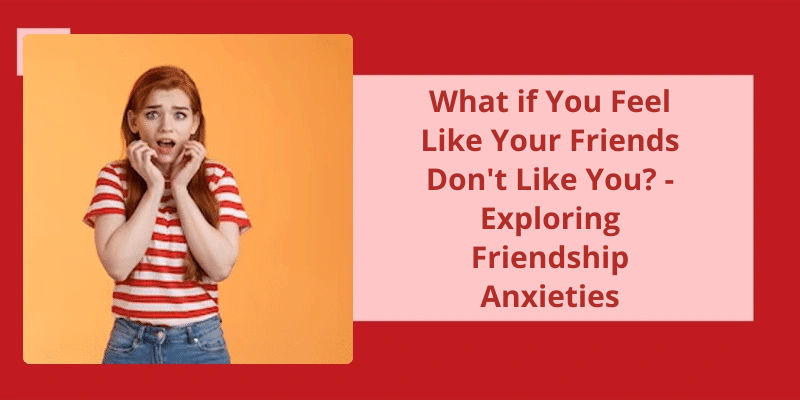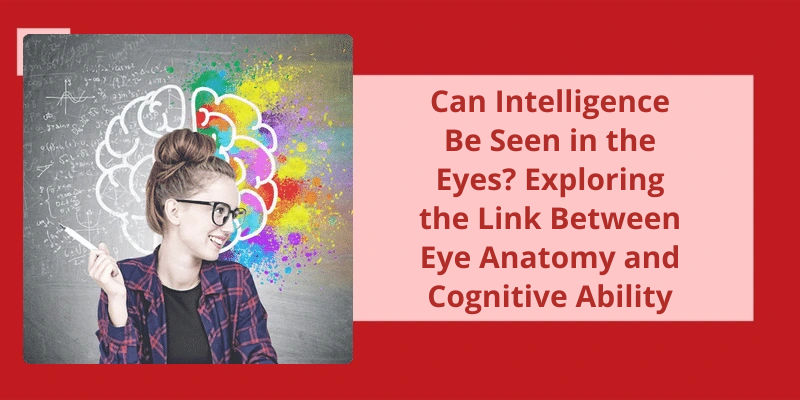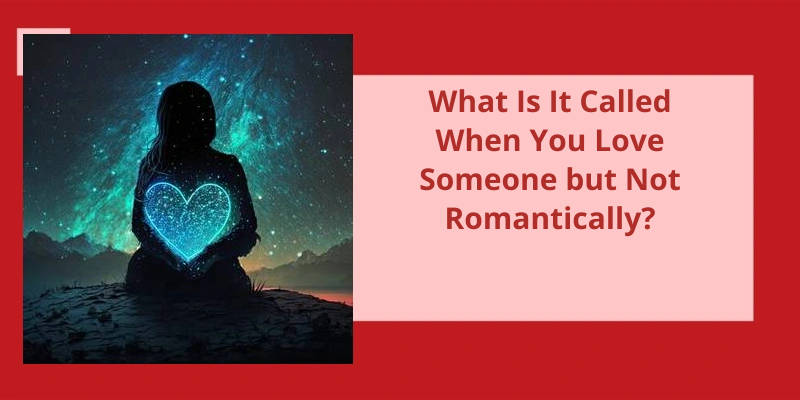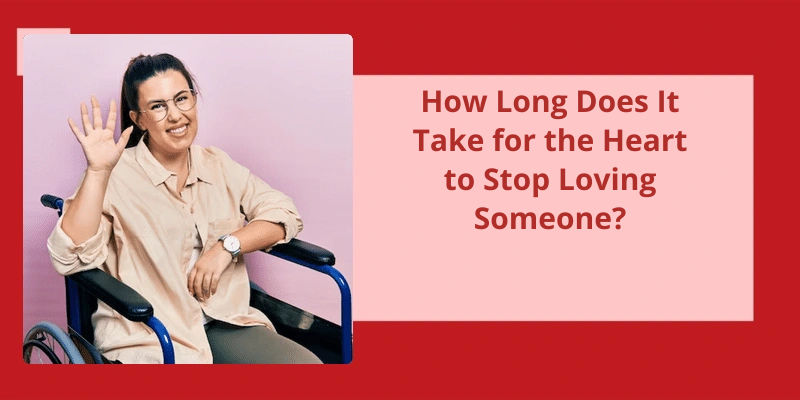As social creatures, we naturally seek the approval and companionship of others. Having friends whom we can rely on for support and share experiences with is a fundamental aspect of human connection. However, not everyone may feel this sense of belonging, as they find themselves questioning if their friends genuinely like them. This feeling can be overwhelming and can lead to self-doubt and insecurity, affecting one's self-esteem and mental health. It's vital to recognize and address these feelings to determine the root cause, improve relationships and take care of oneself.
What Is It Called When You Feel Like Your Friends Don T Like You?
They’re the people who support you through thick and thin, cheer you on during your triumphs, and comfort you during your struggles. However, there may be times when you feel like your friends don’t like you as much as you like them. Perhaps youve noticed that they don’t invite you to as many hangouts as they used to, or you feel like they’re always too busy to return your phone calls or texts.
These feelings may be indicative of imposter syndrome, a psychological pattern in which an individual doubts their accomplishments and worries about being exposed as a fraud. In the case of friendships, imposter syndrome can manifest as feeling like you don’t deserve your friends or that they don’t truly value your presence in their lives.
One way to combat imposter syndrome is by challenging negative self-talk. When you find yourself thinking that your friends don’t really like you, ask yourself if you’ve any concrete evidence that supports that claim. Often, our negative thoughts are based on assumptions or past experiences that may not be reflective of the present situation. By questioning these beliefs, you can begin to reframe your thinking and see your friendships in a more positive light.
By doing things that make you feel good about yourself and acknowledging your strengths and accomplishments, you can boost your self-confidence and begin to see yourself as a valuable member of your friend group. This may include hobbies or activities that give you a sense of purpose, or positive affirmations that remind you of your self-worth.
It can also be helpful to practice open and honest communication with your friends. If you’re feeling insecure or uncertain about the state of your friendships, consider reaching out to your friends and expressing your concerns. They may be able to provide reassurance, or offer insight into any misunderstandings or miscommunications that may be contributing to your feelings of inadequacy. Additionally, by being vulnerable with your friends and sharing your struggles, you can deepen your connections and build a stronger support system.
Ultimately, it’s important to remember that friendships are complex and dynamic relationships that require effort and maintenance. With time and patience, you can find the support and validation you need to thrive in your relationships.
Coping Mechanisms for Dealing With Friendship Breakups or Changes in Relationships
- Take some time for yourself and focus on self-care
- Engage in activities that bring you joy and make you happy
- Reach out to supportive friends or family members
- Consider talking to a therapist or counselor
- Reflect on what you learned from the relationship and how you can grow from it
- Write down your feelings and thoughts in a journal
- Take up a new hobby or activity to distract yourself
- Practice mindfulness and meditation
- Set boundaries and limit contact with the person if necessary
Maintaining friendships is an essential part of anyone’s life, but it’s not always easy to detect when relationships start to fade. If you’re worried that your friends may be losing interest in you lately, there are some telltale signs you can look out for. Keep reading to learn more about how you can tell if your friends don’t like you and what you can do to improve your relationships.
How Can I Tell if My Friends Don’t Like Me?
One of the most distressing feelings in life can be sensing that your friends don’t like you or no longer want to spend time with you. It can be hard to grapple with, especially if you don’t know exactly why this is happening. However, there are some tell-tale signs that may indicate that your friends aren’t feeling particularly fond of you at the moment.
One thing to look out for is a lack of effort in the friendship. If your friends used to text or call you regularly, but suddenly you find that you’re always the one reaching out, this could be a sign that they aren’t as invested in the friendship as they used to be. Similarly, if you notice that they don’t make as much of an effort to make plans with you as they used to, this could also be an indicator that something is off.
Another red flag to watch out for is if your friends are actively avoiding you in public situations. If you find that they’re consistently not sitting with you at lunch, avoiding eye contact, or even crossing the street to avoid running into you, then this could indicate that something has changed in the dynamic of the friendship.
Furthermore, if you notice that your friends have stopped asking questions about you or your life, this could be another sign that they aren’t as invested in your relationship as they used to be. This could potentially indicate that they’re more focused on themselves, or that they don’t care as much about whats going on in your world.
Another big sign to look out for is if your friends start canceling plans or making excuses not to hang out with you. While this can happen to anyone for a variety of reasons, if it feels like it’s happening more and more frequently with your group of friends, it may be a signal that they’re less interested in spending time with you than they used to be.
Finally, a lack of enthusiasm or responsiveness can also be a big giveaway that your friends aren’t really vibing with you at the moment. If they used to be excited about hanging out with you or doing certain activities together, but now they seem lackluster or apathetic, this could be a sign that they aren’t feeling as connected to you as they used to.
How to Address the Issue With Your Friends and Potentially Salvage the Friendship
It can be difficult to address issues with friends without making things worse or ruining the friendship. However, communication is key. Start by setting aside a time to talk privately and calmly about the issue at hand. Be honest but respectful, and try to listen to their perspective as well. Focus on finding a solution together and expressing how important their friendship is to you. With open communication and a willingness to work on the problem, it’s possible to salvage the friendship.
Recognizing when a friend doesn’t like you can be difficult, but it’s important to address negative behavior in order to maintain a healthy and positive relationship. If you’ve noticed your friend acting negatively towards you, there are steps you can take to address the situation and improve the dynamic between you.
How Do You Know if Your Friend Doesn’t Like You?
Another sign that your friend may not like you is if they start avoiding you or canceling plans at the last minute. Maybe they always seem too busy or say they’ve other plans when you suggest hanging out. This could mean that they aren’t interested in spending time with you or that they’ve other priorities. It’s important to communicate with your friend and ask if there’s something going on that they want to talk about. If they don’t want to talk, it may be time to reassess the friendship.
If your friend doesn’t seem interested in your life or what you’ve to say, that could also be a sign that they don’t like you. They may seem disengaged or not ask follow-up questions. They may also seem indifferent to your successes or challenges. This kind of behavior can be hurtful and can make you feel undervalued. It’s important to have open and honest communication with your friend and bring up these concerns. If there’s no improvement, it may be time to move on.
Another way to tell if your friend doesn’t like you is if they’re always talking about other people behind their backs. This can be a sign that they aren’t trustworthy and that they may be talking about you when you aren’t around. It’s important to have friends who’re positive and uplifting, and who don’t engage in gossip or negativity. If your friend is engaging in this kind of behavior, it may be time to distance yourself from them.
If your friend is always criticizing your choices or trying to control what you do, that could also be a sign that they don’t like you. A good friend should respect your choices and support you in your endeavors. If your friend is trying to change you or make you feel like you aren’t good enough, that’s a red flag.
Ultimately, the best way to know if your friend doesn’t like you is to trust your own instincts. If you feel like something is off in the relationship or you aren’t getting what you need from it, it may be time to move on. Remember that friendships should be supportive, uplifting, and positive, and if you aren’t experiencing those things, it may be time to reevaluate.
Signs That Your Friend Is Jealous and Resentful Towards You
- Your friend constantly criticizes you or belittles your accomplishments.
- They try to one-up you or compete with you in every situation.
- They seem unhappy when something good happens to you.
- Your friend becomes distant or avoids you when you share good news.
- They talk negatively about you behind your back.
- Your friend undermines your confidence or makes you doubt yourself.
- They get upset when you spend time with other friends.
- Your friend is overly possessive or jealous of your relationships.
- They try to control or manipulate your actions or decisions.
- Your friend becomes angry or defensive when you confront them about their behavior.
Maintaining friendships can be a challenge, especially when you no longer enjoy spending time with your friends. It’s important to assess what you need from your relationships, communicate your needs, and attempt to bring novelty into your interactions. However, if these efforts fail, it may be necessary to distance yourself from your current friends or even start making new ones. Here are some strategies to consider if you find yourself in this situation.
What to Do if You Don’t Really Like Your Friends?
Friendship is an essential part of human life, and it helps to create a positive social experience. However, there are times when we may not enjoy the company of our friends or find it hard to connect with them. What should you do if you’re in such a situation, and you don’t really like your friends? The first step is to evaluate what you need from your friends. Determine what you want from the relationship and what you need to feel happy and fulfilled. Communication is key, be honest with your friends, and let them know how you feel.
If you’ve been friends for some time, it might be easy to fall into a routine that can become monotonous. To reignite the spark in your friendship, try to bring in some novelty. Take up new hobbies or activities, or plan a special outing that’s out of the ordinary. It’s an excellent opportunity to bond and make new memories.
By learning to communicate your needs, you can strengthen the bond you share with your friends. When you open up to them and share your thoughts, it becomes easier for them to understand your perspective and respond to you. It’s a great way to create deeper connections and establish a strong foundation for your friendship.
It’s essential to accept your friends as they’re and not try to change them. If you focus on their positive attributes and try to understand their perspective, you might find that they’re more likable than you initially thought.
If after trying all these and you still don’t like your friends, it might be time to start seeking new opportunities for friendship. You could join a club, volunteer for a cause you care about, or simply reach out to new people in your social circle. This will help you make new connections and expand your social network.
Finally, if you’ve tried everything and still don’t enjoy the company of your friends, it might be time to distance yourself from them. You can do this gradually by reducing the time you spend with them and focusing on building relationships with new people. By creating space in your life for new relationships, you’ll be able to move forward positively while still maintaining your positive memories of the friendship.
Source: I’ve friends but I don’t like their company anymore. What …
In friendships, there may come a time when you feel like your friend doesn’t like you anymore. It can be a distressing situation that demands immediate attention. However, handling this kind of situation requires tact and emotional intelligence to avoid further complications. One of the best ways to deal with the issue is by trying to talk to your friend about how you feel and the concerns you have. This approach may help you understand where they’re coming from and possibly find a solution to any underlying issues. But what if they’re still unkind or dismissive of your grievances? In this case, it may be time to take a break and give yourself some space to recover emotionally.
What to Do When You Feel Like a Friend Doesn T Like You Anymore?
Feeling like a friend doesn’t like you anymore can be a painful and difficult experience. It’s natural to want to withdraw and avoid confrontation when you feel like someone is rejecting you. However, this may not always be the most effective way to address the problem. Instead, it’s important to be honest and open about how you’re feeling.
One way to start this conversation is to ask your friend how they’re doing and if they’ve noticed any changes in your relationship. It may be that they’re struggling with their own issues and have unintentionally distanced themselves from you. Alternatively, they may be dealing with something that’s causing them to act differently towards you. Whatever the reason may be, it’s important to approach the situation calmly and without judgment.
If your friend is dismissive or unkind when you try to talk about your concerns, it may be time to take a break from the friendship. It isn’t healthy to be in a relationship where you feel constantly rejected and unwanted. It may be difficult to end the friendship, but it’s necessary to prioritize your own well-being.
Taking a break from the friendship doesn’t necessarily mean ending it permanently. It may be that both of you need space to work through your own issues and come back to the relationship with a fresh perspective. During this time, it’s important to focus on self-care and building other relationships that bring you joy and fulfillment.
Remember that everyone goes through changes and transitions in their lives, and it’s okay to outgrow relationships that no longer serve you. Ending the friendship doesn’t mean that you can’t be civil or cordial to each other in the future.
However, it’s important to be honest and open about your feelings and to try to talk to your friend about the situation. Remember to prioritize self-care and building other fulfilling relationships.
Tips for Improving Communication in Friendships to Prevent Misunderstandings and Conflicts
As people in our lives, friends play a vital role. However, communication in friendships can sometimes lead to misunderstandings and conflicts. To avoid such situations, it’s essential to follow certain tips. These tips include active listening, interpretation of non-verbal signals, avoiding assumptions and bias, being open and honest, and offering mutual respect to each other. Following these simple tips can go a long way in preventing misunderstandings and conflicts.
It can be difficult to recognize when a friendship is fading, but there are signs to look out for if you suspect that your friends may not be as invested in the relationship as they once were. Here are eight tell-tale behaviors that may indicate that someone is no longer interested in being your friend.
How Do You Tell if Your Friends Don’t Like You Anymore?
There are few things as painful as realizing that your friends may not like you anymore. However, it’s essential to recognize the signs so that you can either work to improve the relationship or move on. One of the primary indicators that someone may not want to be your friend anymore is that youre putting in most of the effort. If youre consistently the one initiating plans and reaching out, and theyre not reciprocating, it may be time to reevaluate the situation.
Another way to tell if someone doesn’t want to be your friend anymore is if theyre actively avoiding connecting deeply with you. If you notice that your conversations are surface-level and that theyre not interested in discussing anything more personal or substantial, it could be a sign that theyre not invested in the relationship. Similarly, if they don’t ask about you or seem disinterested in whats going on in your life, they may not value you as a friend anymore.
If your friend has stopped reaching out or making plans, thats a huge red flag. Even if youre the one who typically initiates plans, your friend should still be making an effort to stay in touch and keep the friendship alive. Similarly, if they regularly cancel plans or seem flaky when it comes to following through on commitments, it’s a sign that theyre not prioritizing your friendship.
Ultimately, if you suspect that your friend doesn’t like you anymore, it’s crucial to trust your gut. While it’s possible that youre misreading the signs, if something feels off, it probably is. Instead of trying to force the friendship, be honest with yourself and with your friend. Acknowledge how youre feeling and see if theres a way to salvage the relationship. If not, it’s okay to move on and find new, more fulfilling connections with people who appreciate you for who you are.
Signs That You May Be the One Causing the Rift in the Friendship
There are certain behaviors that one can exhibit that may signal they’re causing a rift in a friendship. These behaviors include constantly cancelling plans, not showing up to important events, making negative comments about the friend or their interests, and being consistently selfish in the friendship. It’s important to self-reflect and consider if any of these behaviors apply to oneself and to make efforts to change them in order to repair the friendship.
Conclusion
In conclusion, feeling like your friends don't like you can be a difficult and distressing experience. However, it's important to remember that your perceptions may not necessarily reflect reality. It's crucial to communicate with your friends and discuss any concerns or issues you might have. Additionally, it's important to maintain a healthy self-image and not define yourself solely based on the opinions of others. Ultimately, maintaining strong relationships requires effort and open communication, so don't be afraid to take the initiative and reach out to your friends if you feel like there might be any issues between you. Remember, friendship is a complex and rewarding experience, and with effort and mutual respect, it's possible to build and maintain strong, meaningful connections with the people around you.





